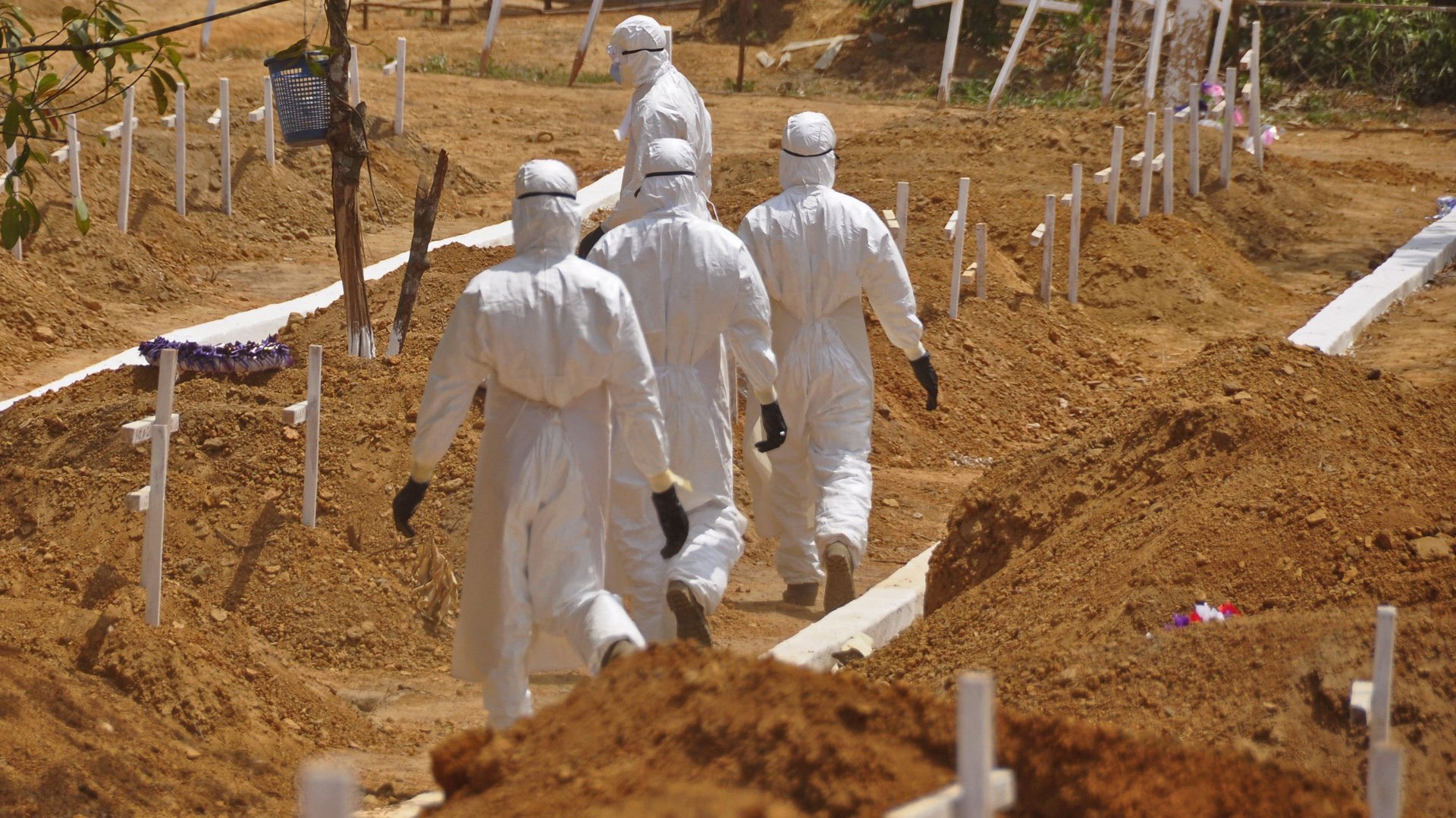Ebola outbreak could be over by the summer
A year after Ebola began raging through Western Africa, officials are tentatively forecasting an end to the outbreak by as early as August. “We have been running away from giving any specific date, but I am pretty sure myself that it will be gone by the summer,” Ismail Ould Cheikh Ahmed, the head of the UN Ebola response team, told the BBC.


A year after Ebola began raging through Western Africa, officials are tentatively forecasting an end to the outbreak by as early as August. “We have been running away from giving any specific date, but I am pretty sure myself that it will be gone by the summer,” Ismail Ould Cheikh Ahmed, the head of the UN Ebola response team, told the BBC.
His comment follows remarks from Dr. Bruce Aylward, head of the World Health Organization’s anti-Ebola effort who said on March 11 (paywall) that “it should be possible to stop transmission by the middle of the year.”
The spread can only be stopped, however, if international support to fight the outbreak is sustained, Aylward said.
According to the US Center for Disease Control and Prevention, as of March 20, 10,251 people have died of the virus. All but 15 of the victims are in Sierra Leone, Liberia and Guinea. 24,000 have been infected.

Doctors Without Borders, the aid organization, warns that declaring an end to the outbreak will be difficult. It can only happen after no new cases have been recorded in a six week period. Sierra Leone announced on March 20 that it had seen no new cases in two weeks, but Liberia recorded its first new case, also in two weeks. In Guinea, several new cases have been recently recorded.
“To declare an end to the outbreak, we must identify every last case, requiring a level of meticulous precision that is practically unique in medical humanitarian interventions in the field,” the organization says in a report released March 23, detailing the world’s slow response to the deadly disease. ”The number of new cases weekly is still higher than in any previous outbreak. Success in reducing the number of cases in one location can be swiftly ruined by an unexpected flare-up in an unforeseen area.”